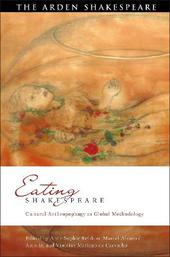
|
Eating Shakespeare: Cultural Anthropophagy as Global Methodology
Paperback / softback
Main Details
Description
Eating Shakespeare provides a constructive critical analysis of the issue of Shakespeare and globalization and revisits understandings of interculturalism, otherness, hybridity and cultural (in)authenticity. Featuring scholarly essays as well as interviews and conversation pieces with creatives - including Geraldo Carneiro, Fernando Yamamoto, Diana Henderson, Mark Thornton Burnett, Samir Bhamra, Tajpal Rathore, Samran Rathore and Paul Heritage - it offers a timely and fruitful discourse between global Shakespearean theory and practice. The volume uniquely establishes and implements a conceptual model inspired by non-European thought, thereby confronting a central concern in the field of Global Shakespeare: the issue of Europe operating as a geographical and cultural 'centre' that still dominates the study of Shakespearean translations and adaptations from a 'periphery' of world-wide localities. With its origins in 20th-century Brazilian modernism, the concept of 'Cultural Anthropophagy' is advanced by the authors as an original methodology within the field currently understood as 'Global Shakespeare'. Through a broad range of examples drawn from theatre, film and education, and from both within Brazil and beyond, the volume offers illuminating perspectives on what Global Shakespeare may mean today.
Author Biography
Anne Sophie Refskou, Research and Education Consultant at HamletScenen, Elsinore, Denmark; Marcel Alvaro de Amorim, Federal Institute of Rio de Janeiro, Brazil and Vinicius Mariano de Carvalho, King's College London, UK.
ReviewsConsistently interesting and excellently articulated ... Whether one is a Shakespeare scholar, a theatre practitioner, a creative writer, or simply an anthropology enthusiast, this book contains enough nutrients to sustain multiple explorations not only from the alleged 'periphery' of Global Shakespeares but also productions closer to home in the 'centre' of Shakespeare studies. * SKENE Journal of Theatre and Drama Studies *
|